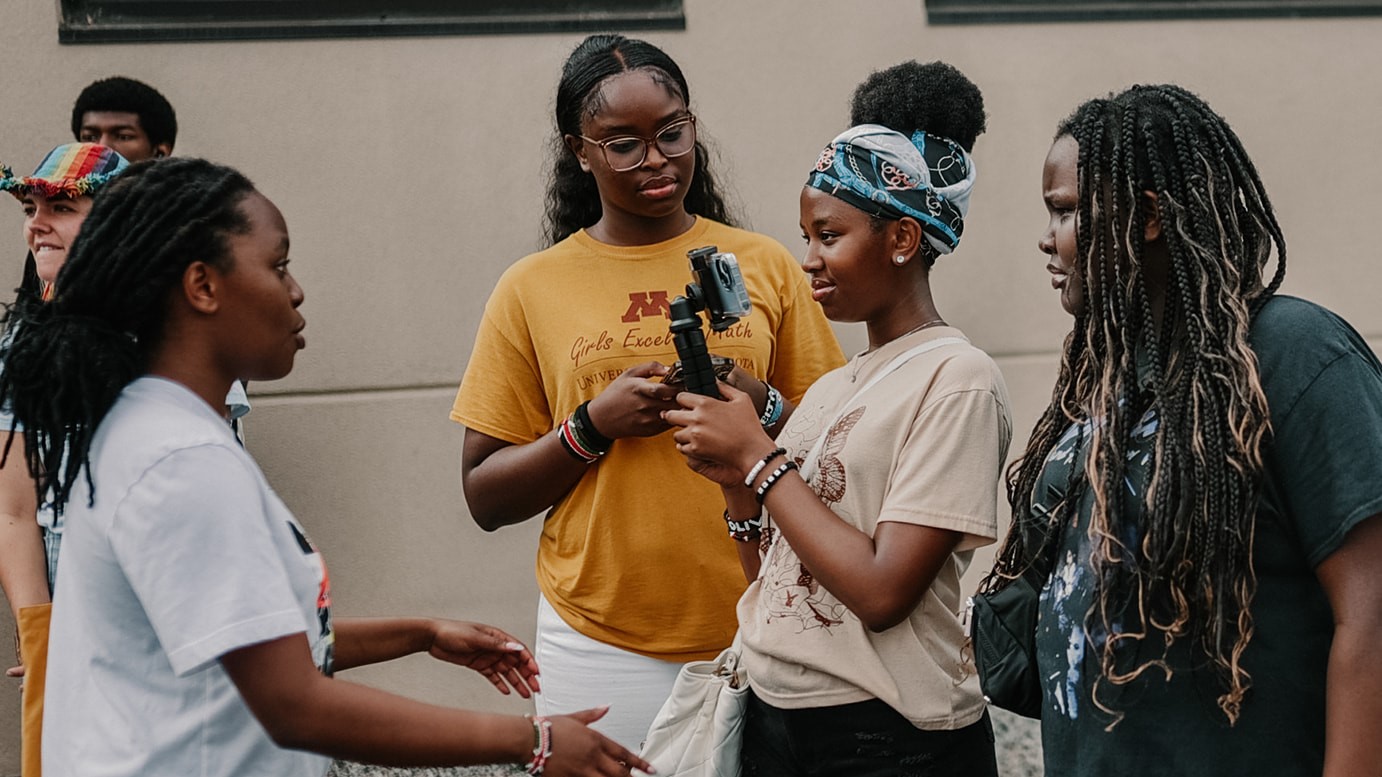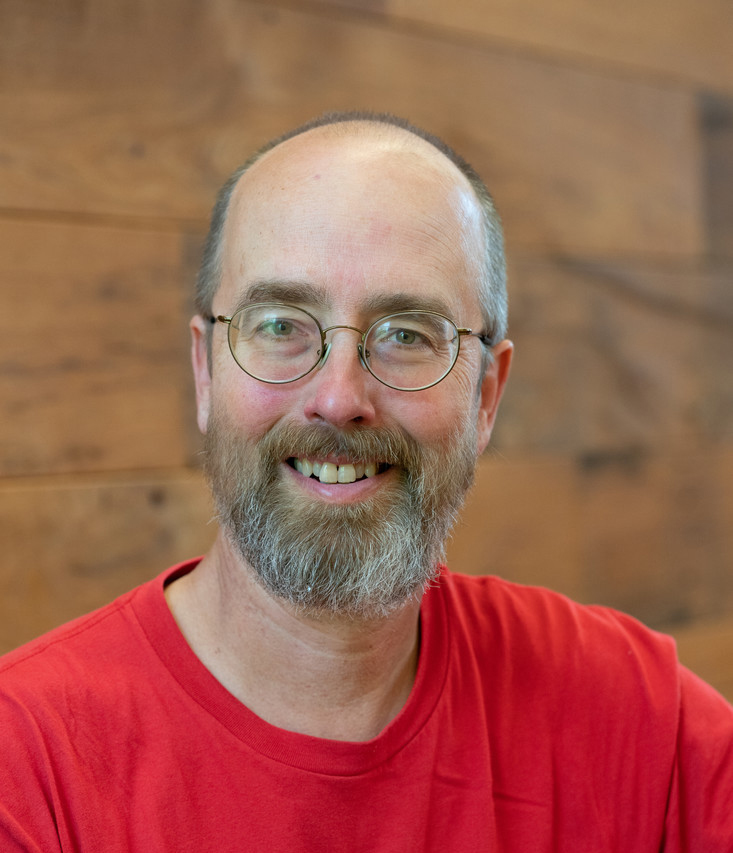
Freedom School youth rally in solidarity at a community awareness event. Photo: Adrian Alvarez
All people should have access to safe and affordable transportation. But too often, high fares and the presence of police make getting to and from work or school a burden – especially for communities of color.
In Los Angeles, AFSC’s Roots for Peace Program is working in coalition to change this. Over the summer, our 11-day intensive Freedom School engaged 25 youth, mostly Latinx, interested in working for social justice. Youth analyzed intersectional, systemic inequalities that affect communities in South Central L.A. They chose fareless transit as their organizing project after learning about AFSC’s work on transit justice from Program Director Adalberto (Beto) Rios.
“Being a bus rider is a big part of my identity,” said one participant, Yuliana. At the start of Freedom School, she and other participants shared their “life maps,” which depicted how systems interact with the lived experiences of young people. Yuliana talked about being on public transportation every day growing up. That’s how she met many people on the bus and how she came to understand her city.
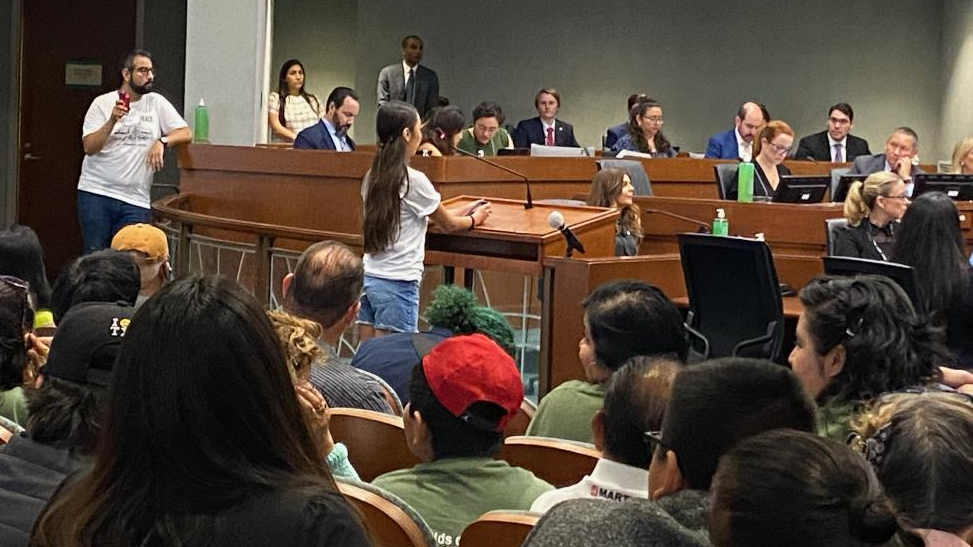
Yuliana speaks in support of fareless transit at an L.A. Metro Board meeting. Photo: Crystal Gonzalez/AFSC
Beto says that there are many worthwhile issues that AFSC and the youth could focus on. “But there are few that are more cross-cutting in L.A. than transit justice, which has both a racial and economic impact,” he says, “While the core of our campaign is to have free transit justice, we also want to remove funding for police and add that money to core capital improvements for the train and bus systems.”
Crystal Gonzalez, AFSC program coordinator, noted that most of the young people at Freedom School said they didn’t feel safe around the police. But many were surprised to learn that others had similar feelings. “Wow, I thought it was just me who felt unsafe,” Crystal recalls one youth saying. “And now I feel some relief that I’m not alone in this analysis and that we can do something about it.”
Beto summarized it this way. “If people don’t have to pay to get on the bus or train, you can’t police people, ticket, or fine them. You can’t fine students or working-class people who don’t have enough money. You can’t fine houseless people trying to get away from the heat. It leads to all-around way less policing.”
As an alternative, advocates say Metro could use more unarmed transit ambassadors, especially on buses, to promote safety and de-escalate situations. Ambassadors help orient people and connect riders who need assistance with mental health or housing.
After studying and discussing the issues and potential solutions, Freedom School participants applied what they learned to advocate in real life. They attended a Metro Board meeting to push for fareless transit – something that recently elected Mayor Karen Bass had campaigned on. Among the adult representatives from other organizations, Yuliana was the only young person to speak at the meeting.
“I live in South Central, and for 16 years, Metro has been a huge part of my mom’s and my everyday life,” she told the Board. “Fareless transportation would significantly help my single mother and other low-income families.”
The Metro Board meeting gave participants a glimpse of the challenges in organizing and advocacy. Some youth were frustrated that the Board didn’t share their sense of urgency around fareless transit. While the mayor promised that “we’ll get there,” the young people insisted that the time is now. It was a reminder of the long-term work required to make real policy change.
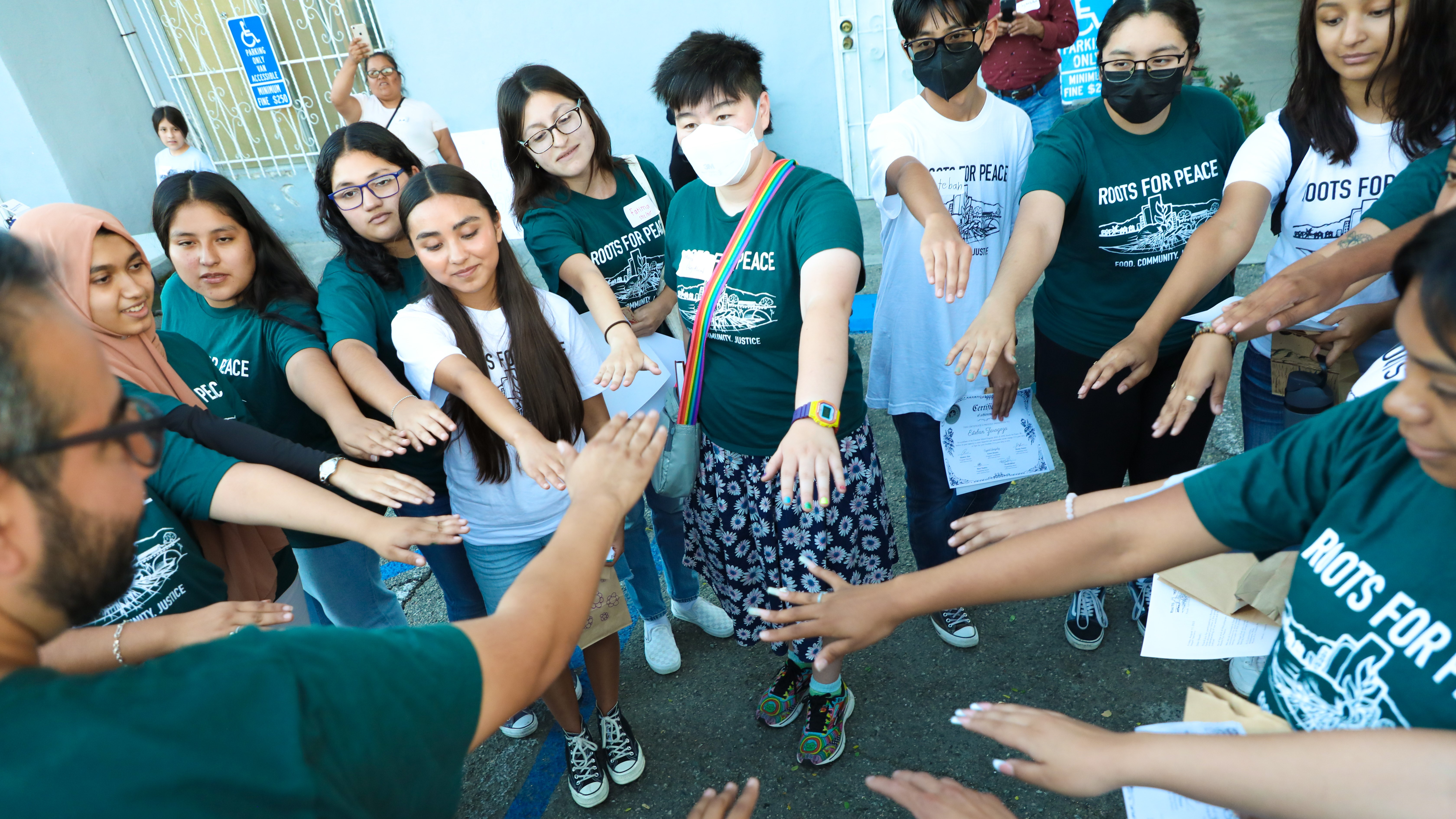
Freedom School youth huddle before their community presentation. Photo: Adrian Alvarez
To mark the end of Freedom School, youth held an art-themed celebration. That gave all the students a chance to share with their families about their experiences. One group created a zine that read, in part:
“A fareless Metro in Los Angeles would bring justice to low-income communities, especially people of color, by boosting equity, empowerment, mobility, health and sustainability. Removing fares breaks down barriers, fostering inclusivity, community development and addressing past transportation inequalities. It’s a vital step towards a fairer and more accessible city for everyone.”
The celebration highlighted the dramatic changes youth experience at Freedom School. “There were quite a few young people who were knowledgeable but shy at the beginning,” Beto says. “Towards the end, to see them all taking part in giving these presentations, giving their opinions and perspectives on why and how this issue of transit justice is important and how it affects their communities – that was very powerful.”
What’s next for Freedom School participants? The AFSC team will meet with each young person to check in about issues they’re encountering in their schools and broader lives. Youth will also be invited to take part in AFSC’s next organizing program, set to start in January. It’s very likely transit justice will remain a focus of their work.
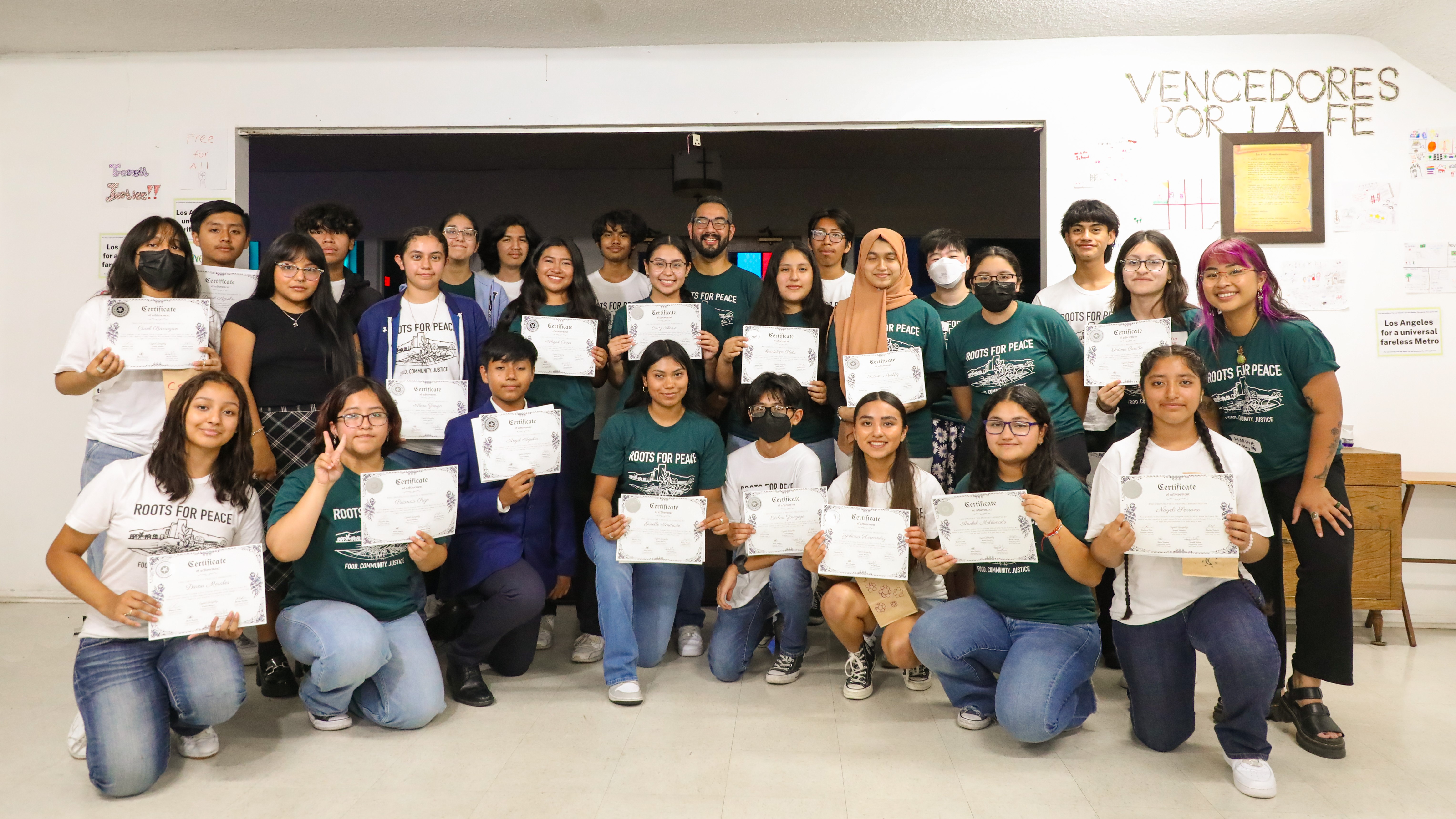
Youth at their Freedom School graduation. Photo: Adrian Alvarez
